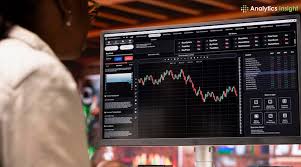
Understanding the Market What is Crypto Futures Trading

What is Crypto Futures Trading?
In the rapidly evolving financial landscape, cryptocurrencies have emerged as a significant asset class. One intriguing aspect of cryptocurrency trading is futures trading. This article will explore what crypto futures trading is, how it operates, its benefits, risks, and key differences from traditional trading. For more detailed information, what is crypto futures trading visit website.
What are Crypto Futures?
Crypto futures are contracts that allow traders to buy or sell a specific cryptocurrency at a predetermined price on a specified date in the future. Unlike traditional options, which offer the ability but not the obligation to buy or sell, futures contracts obligate the buyer to purchase or the seller to sell the asset at the agreed price. This market enables traders to speculate on price movements without owning the underlying asset.
How Does Crypto Futures Trading Work?
At its core, crypto futures trading entails entering into a contract with another party to buy or sell a certain amount of cryptocurrency at a future date and price. The fundamental mechanics of crypto futures trading can be broken down into several key steps:
- Contract Creation: Traders can create or enter contracts on exchanges that offer futures trading. These contracts specify the cryptocurrency involved, the future date of settlement, and the price at which the transaction will occur.
- Margin Trading: Most crypto futures exchanges require traders to put down a margin, which is a fraction of the total value of the contract. This allows for leverage, meaning traders can control larger positions than what their capital would normally allow.
- Price Movements: As prices fluctuate, the values of futures positions also change. Traders aim to profit from these movements either by buying low and selling high or by shorting (betting against) the market.
- Expiration and Settlement: When a futures contract reaches its expiration date, it settles. This can happen in one of two ways: through cash settlement (where the profit or loss is transferred in cash) or physical settlement (where actual delivery of the underlying asset occurs).

Benefits of Crypto Futures Trading
There are several advantages to engaging in crypto futures trading:
- Leverage: Futures trading allows traders to use borrowed funds (leverage) to amplify their potential profits. This can lead to significant returns on investment if the trader makes accurate market predictions.
- Hedging: Investors can use futures contracts to hedge their positions against price fluctuations in the cryptocurrency market. For example, if a trader holds a large amount of Bitcoin and fears a price drop, they can short Bitcoin futures to offset potential losses.
- Access to Various Strategies: Futures trading offers a broader set of strategies, including speculation, hedging, and arbitrage, making it suitable for different types of traders and investors.
Risks Associated with Crypto Futures Trading
While there are notable benefits, crypto futures trading also carries significant risks:
- High Volatility: Cryptocurrencies are notorious for their price volatility. While this creates opportunities for profit, it also increases the risk of significant losses.
- Leverage Risks: While leverage can amplify gains, it can also amplify losses. Traders can lose more than their initial investment, leading to margin calls or liquidations.
- Market Manipulation and Scams: The cryptocurrency market is still relatively young and less regulated compared to traditional markets, making it susceptible to manipulation and fraudulent schemes.
Traditional Trading vs. Futures Trading
Understanding the difference between traditional trading and futures trading is essential for anyone interested in crypto trading. In traditional spot trading, an investor buys or sells an asset immediately at the current market price. The goal is often to hold the asset long-term in anticipation of price appreciation.

In contrast, futures trading is more speculative and oriented towards short-term price movements. It requires a different mindset, as traders frequently assess and respond to market trends, rather than investing long-term in an asset. Additionally, futures trading allows for short positions and hedging strategies that aren’t available in traditional spot trading.
Popular Exchanges for Crypto Futures Trading
Numerous exchanges offer crypto futures trading, each with various features, fees, and security measures. Some of the most widely used platforms include:
- Binance: Known for its extensive range of cryptocurrencies and user-friendly interface, Binance offers futures contracts with considerable leverage.
- BitMEX: A platform specializing in cryptocurrency derivatives, BitMEX offers Bitcoin futures with high leverage, appealing to experienced traders.
- FTX: FTX has garnered popularity for its innovative products and user-friendly design, making it easier for new traders to engage with futures contracts.
Conclusion
Crypto futures trading represents a dynamic and exciting opportunity for traders and investors. While it presents unique opportunities for profit through leverage and short-selling, it is crucial for participants to recognize the associated risks. As the cryptocurrency market continues to grow and evolve, understanding the intricacies of futures trading will become increasingly important for anyone looking to participate in this space. Whether you’re an experienced trader or a newcomer, educating yourself and carefully considering your strategies can greatly improve your chances of success in crypto futures markets.
